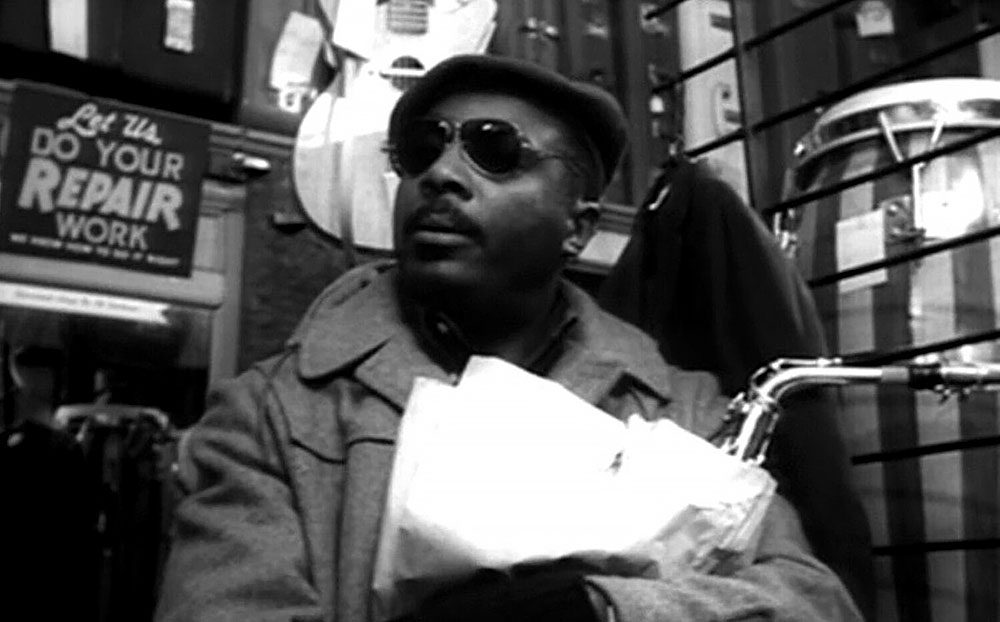Sweet Love, Bitter (1967) is a film adaptation of John A. Williams’s novel Night Song directed by Herbert Danska. The story is loosely based on the tumultuous final days of the Black jazz virtuoso Charlie “Yardbird” Parker, after which the protagonist, Richard “the Eagle” Stokes (Dick Gregory), is modeled. In the film, Stokes strikes up a friendship with David Hillary (Don Murray), a white professor grieving the death of his wife; together, they feed off each other’s self-destructive tendencies, often in the form of dope and alcohol benders.
Danska’s film alternately meanders and lunges, encompassing both the introspection and mania that characterized the bebop jazz movement that Parker helped usher in. Often, the character’s emotions are in direct opposition to their circumstances. After pawning their prized possessions, Hillary and Stokes nurse bottles in the bitter cold night. They giggle and sway in the wind, deferring all their problems, including shelter, to the next day. Zooms, jump cuts, fish-eye lens shots, and dream sequences accentuate their altered states of mind throughout Sweet Love, Bitter, and in one scene, Hillary and Stokes imagine getting a group of scholars high on weed during the former’s upcoming interview for a job at a university. Meanwhile, Keel (Robert Hooks), a bar owner and the primary voice of reason among the men, has cryptic nightmares of losing Stokes for good. Race and addiction mark many differences in the lives of Hillary and Stokes. The former eventually pulls himself back on his feet as a respectable professor, insulated from the quotidian humiliations of state violence faced by Stokes, who self-medicates to ease his acute pain of alienation. He’s most in control on stage—shades on, horn in hand.
The bebop style of jazz that Parker is commonly credited with developing is characterized by dizzyingly fast tempos, intricate melodies, unconventional harmonies, and, above all, improvisation. This musical philosophy, prone to volatility, is mirrored not only by Stokes’s character but also the film’s construction. The original cut of Sweet Love, Bitter—which never made it to theaters and featured a character based on Miles Davis—was refashioned into the version we have today, which was retitled It Won’t Rub Off Baby! by the film’s producers upon release, much to Danska’s dismay. Following its negligible theatrical release, the film has been confined to the occasional arthouse exhibition, in large part yet to receive the flowers it deserves. Perhaps this film is not meant to be understood by a mainstream, assumedly white audience. As bebopper Thelonius Monk once said: “Don’t play what the public want—you play what you want and let the public pick up on what you doing—even if it does take them fifteen, twenty years.”
Sweet Love, Bitter screens tonight, August 7, at Dear Friend Books as part of the series “Dear Friend Cinema.” The screening is presented by Alfreda's Cinema and preceded by live music.



